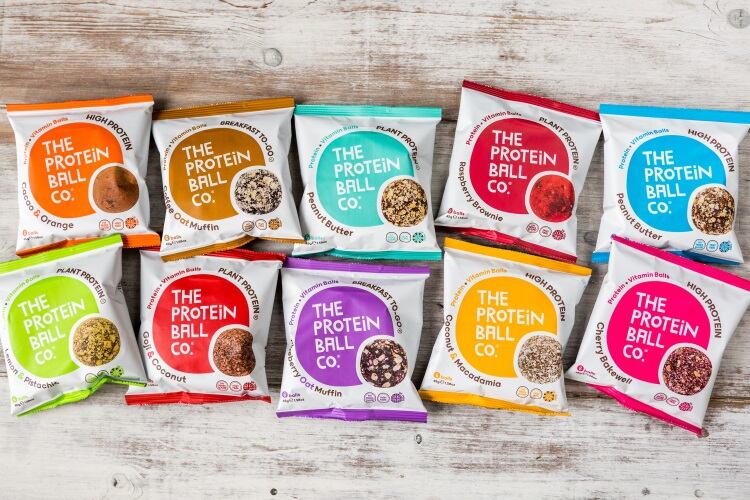Even before the global pandemic, the definition of wellness was evolving into a more holistic concept encompassing physical, mental and emotional well-being. More people were recognising how nutrition helps optimise health and performance.
Since COVID-19, this awareness has surged. Globally, 61% of consumers are more conscious of the need to lead a healthy lifestyle. Three-quarters of global consumers say they will eat and drink more healthily, and 44% have sought functional food and beverages more frequently in the last month, according to FMCG Gurus 2021 report ‘How has COVID-19 changed consumer behaviour’.
People have also had to adjust their pace and type of physical activity since 2020. While they might have encountered barriers like gym closings and suspension of team sports, many have found new ways to be active, from virtual yoga to indoor cycling to nature hikes. In fact, a survey by The Hartman Group found 27% of Americans say they now exercise more than before the pandemic. This heightened focus on health and wellness has given rise to the everyday athlete.
Today, sports nutrition is a tool to help individuals stay physically and mentally fit. ADM’s own Outside Voice research shows 49% of consumers feel every individual is unique and requires a customised approach to diet and exercise.
With that, consumers are looking for foods that target their personal needs instead of one-size-fits-all solutions. Nutrition bars fortified with functional ingredients like protein, fibre and probiotics help meet this need.
Protein
Protein helps satisfy hunger and provides natural energy and plant proteins, in particular, are securing their position as a trend-forward nutritional ingredient.
Soy, pea, hemp, chickpea, navy beans or a blend of plant proteins are catching shoppers’ attention as they seek out protein-packed sports bars. Plant-based ingredients can also meet specific needs for different diet approaches, including paleo, keto, gluten-free, flexitarian and more.
In formulation, it’s important to start with high technical quality, neutral-tasting plant proteins because some ingredients might cause inherent off-notes or texture issues. Developers should use low solubility and low water-binding proteins, like pea and soy, to minimise hardening and extend shelf life of nutrition bars.
Fibre
According to ADM research, 63% of consumers say they are trying to add dietary fibre to their diet.
Fortified bars are prime for a boost of fibre, in which various types of fibre support digestive health and weight management and target satiety. Ancient grains, nuts and seeds provide great texture and taste and a dietary source of fibre.
Soluble dietary fibre is also a flexible solution for a variety of baked goods, including bars, helping maintain desired texture, reduce sugar and might extend shelf life, all while increasing fibre content.
Prebiotics, probiotics, postbiotics
Foods that support the gut microbiome are increasingly popular as more consumers are aware of its connection to immune function, gut health and overall wellness. In fact, Mintel’s research found more consumers are exploring ‘biotics’ with online searches for postbiotics, prebiotics and probiotics up by 91%, 83% and 41%, respectively.
Postbiotics are a preferred choice for bakers because they do not contain live microorganisms, are more tolerant to heat processing and more likely to maintain their functional benefits for consumers throughout the formulation process.
Flavour
Consumers prefer natural flavours in most products, and bars are no different.
Health-signalling flavours can be easily incorporated with whole ingredients, like elderberry and cranberry, as well as citrus and mint extracts. Dessert-like flavours – such as vanilla, chocolate, peanut butter and birthday cake – are also popular and offer a sense of indulgence.
For post-workout recovery, botanicals like chamomile, lemongrass or lavender can signal relaxation.
Reduced sugar
Many people are reducing their sugar intake, and research shows sugar reduction becomes 56% more important to consumers when they’re seeking functional foods with added health benefits like protein and fibre.
Nutrition bars benefit from sweetening solutions that replace sugar while rebalancing flavour and rebuilding functionality.
Clean label
Consumers are increasingly concerned about what is on ingredient labels, which creates both opportunities and challenges for product developers. This is because some of the non-negotiable sensory experiences for snacks, such as taste and texture, are required for consumer appeal. Simple, nutritious ingredients can deliver sensory appeal and meet clean label desires.
While sports bars were once considered a niche for serious athletes, they now provide a convenient boost of nutrients for a wider variety of active individuals. Consumers are looking for great taste, functional health benefits, clean labels and a way to curb hunger while they’re on-the-go.
Brands that can deliver on these demands have a growing opportunity to help fuel consumers in the game of life.




